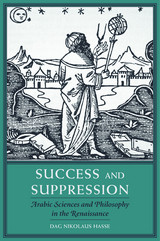
Until the suppression of the Society of Jesus in 1773 by Pope Clement XIV, the Jesuits had been the undisputed “schoolmasters of Europe.” In France, especially, the educational system of the Society had attained its most widespread development and its greatest fame. The nineteenth-century colleges, formed after the revival of the Society in 1814, never reached the number, size, or influence of their predecessors; but for their time and for the new obstacles they faced, these schools were important. Founded during a period of growing secularization, they faced the constant threat of political attack. Indeed, both their admirers and their critics believed that the Jesuit schools fostered in their graduates distinctive attitudes toward state and society.
John W. Padberg, S.J., has written the first full-length study of these colleges, from their revival in 1815 to their suppression in 1880. Drawing almost exclusively on archival material not previously utilized, Father Padberg places his study against the background of anti-clericalism, revolution, the Second Empire, and the first decade of the Third Republic. He describes the founding of the schools; their resources; their curriculum structure and content; their inner life—religious practices, the daily order, the social structure; and their relation to the political and social milieu of the times. He also discusses the backgrounds and ideological orientations of the faculty and students.
The author first portrays life in the semi-clandestine seminary schools in France from 1815 to 1828. He then depicts the experiences of the exile colleges on the borders of France. With the passage of the Falloux Law of 1850, Jesuit colleges became legal in France for the first time since the 18th century. Father Padberg describes the subsequent rush to found new schools and the resultant problems of lack of personnel, financial crises, and governmental suspicion. He discusses in detail the inner lives of these seventeen new colleges.
During the early years of the Third Republic, the Jesuits founded eleven more colleges. But the mutual fear and misunderstanding between the Society and the Republic and the growing anti-clericalism of the government came to a climax in 1880, when Jules Ferry expelled the Jesuits from these institutions and made impossible their control over any such schools in France.
Father Padberg concludes that during these sixty-five years the French Jesuit schools had little room to maneuver. Externally, government suspicion and hostility circumscribed them. Internally, they reacted to this hostility, which antedated the French Revolution, by the inability to adapt to contemporary circumstances their commitment to the values of a humane and Christian education.

The Renaissance marked a turning point in Europe’s relationship to Arabic thought. On the one hand, Dag Nikolaus Hasse argues, it was the period in which important Arabic traditions reached the peak of their influence in Europe. On the other hand, it is the time when the West began to forget, and even actively suppress, its debt to Arabic culture. Success and Suppression traces the complex story of Arabic influence on Renaissance thought.
It is often assumed that the Renaissance had little interest in Arabic sciences and philosophy, because humanist polemics from the period attacked Arabic learning and championed Greek civilization. Yet Hasse shows that Renaissance denials of Arabic influence emerged not because scholars of the time rejected that intellectual tradition altogether but because a small group of anti-Arab hard-liners strove to suppress its powerful and persuasive influence. The period witnessed a boom in new translations and multivolume editions of Arabic authors, and European philosophers and scientists incorporated—and often celebrated—Arabic thought in their work, especially in medicine, philosophy, and astrology. But the famous Arabic authorities were a prominent obstacle to the Renaissance project of renewing European academic culture through Greece and Rome, and radical reformers accused Arabic science of linguistic corruption, plagiarism, or irreligion. Hasse shows how a mixture of ideological and scientific motives led to the decline of some Arabic traditions in important areas of European culture, while others continued to flourish.

In 1908, a very public crusade against opium was in full swing throughout China, and the provincial capital and treaty port of Fuzhou was a central stage for the campaign. This, the most successful attempt undertaken by the Chinese state before 1949 to eliminate opium, came at a time when, according to many historians, China’s central state was virtually powerless. This volume attempts to reconcile that apparent contradiction.
The remarkable, albeit temporary, success of the anti-opium campaign between 1906 and 1920 is as yet largely unexplained. How these results were achieved, how that progress was squandered, and why China’s opium problem proved so tenacious are the questions that inspired this volume. The attack on this social problem was led by China’s central and provincial authorities, aided by reformist elites, and seemingly supported by most Chinese. The anti-opium movement relied on the control and oversight provided by a multilayered state bureaucracy, the activism and support of unofficial elite-led reform groups, the broad nationalistic and humanitarian appeal of the campaign, and the cooperation of the British government. The extent to which the Chinese state was able to control the pace and direction of the anti-opium campaign and the evolving nature of the political space in which elite reformers publicized and enforced that campaign are the guiding themes of this analysis.
READERS
Browse our collection.
PUBLISHERS
See BiblioVault's publisher services.
STUDENT SERVICES
Files for college accessibility offices.
UChicago Accessibility Resources
home | accessibility | search | about | contact us
BiblioVault ® 2001 - 2024
The University of Chicago Press









